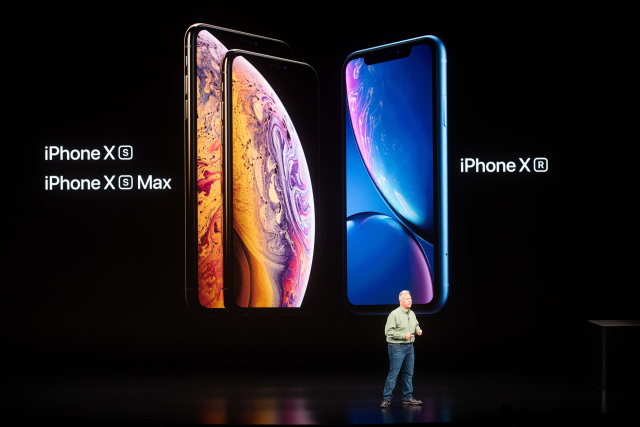
Image: AFP PHOTO / NOAH BERGER
Apple sent out invitations on Thursday, Aug. 29 to a September 10 event at its Silicon Valley campus where it is expected to unveil a new-generation iPhone.
In its trademark, tight-lipped style, Apple disclosed little about what it plans to spotlight in the Steve Jobs Theater at its headquarters in the city of Cupertino.
For years now, Apple has hosted events in the fall to launch new iPhone models ahead of the Christmas holiday shopping season.
Introduction of “iPhone 11” handsets would come as the global smartphone market tightens and Apple makes a priority of selling digital content and services to fans of its hardware.
New iPhones are expected to boast improvements including ramped-up processing power and camera capabilities, but no radical changes or offerings for super-speedy 5G telecom networks that are starting to take shape.
Apple last month delivered stronger than expected results in the just-ended quarter as growth from services helped offset weak iPhone sales.
Chief executive Tim Cook said the company had its “biggest June quarter ever—driven by all-time record revenue from services, accelerating growth from wearables, strong performance from iPad and Mac and significant improvement in iPhone trends.”
Long the driver of Apple’s money-making machine, iPhone revenue overall was down 12% from last year to $26 billion.
The premium smartphone market has grown fiercely competitive and overall sales have cooled as a lack of stunning innovation has caused people to wait longer before upgrading to new models.
Rivals in the premium smartphone market also field champions to fight for market share during the prime shopping season.
Google typically holds a Fall event to launch new Pixel smartphones powered by its Android software.
Samsung recently introduced a new-generation Galaxy Note large-screen handset starting at $950 and said it will work closer with Microsoft so that services function better across its array of devices.
Apple lost more ground in the shrinking smartphone market last quarter, with a sales tracker saying the tech giant was pushed off the top-three seller list by a Chinese rival.
Apple fell to fourth place in global smartphone sales, shipping 35.3 million iPhones in the second quarter compared to the 36.2 million units shipped by Oppo, according to a report from IHS Markit this week.
South Korean consumer electronics titan Samsung remained in first place with 23% of the market, having shipped 75.1 million smartphones, China’s Huawei shipped 58.7 million smartphones to claim 18% of the market, IHS Markit calculated.
Other smartphone market trackers such as Counterpoint Research and International Data Corporation concluded that while iPhone shipments sank in the second quarter, Apple remained in third place what it came to global shipments. NVG
RELATED STORIES:
Operation indiscriminately infects iPhones with spyware
Apple loses more ground in smartphone market